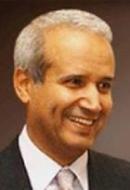He who travels a lot, suffers a lot. Millions of passengers who pass through Middle Eastern airports share the same feeling, including myself. However, we have recently noticed some developments in the airline industry and travel services. Although airline companies still tire out its passengers with delays, the limited improvement in airports has reduced complaints.
Being a frequent passenger in Jeddah and Riyadh’s airports, I always felt that passing through was a test for the passengers’ and my patience because of the poor services and the long waiting periods.
Despite the light renovations that were made in the structure of the two airports, the impact was great on the passengers. Until recently, these airports had no coffee shops, except for one that served detestable coffee, no restaurants, stores, waiting lounges, adequate toilets, currency exchange devices or kiosks. In addition, flight information screens were damaged, the voice calling for flights was unbearable, and the staff working in the security inspection and passport department leaves you horrified and feeling guilty.
All that was at a time when there were few of the elite society relaxing in a corner of the airports, called the executive office, sitting on sofas with tea, coffee and juices served to them continuously.
Today, things have changed. The airports look and serve better despite the increase in the number of flights and passengers. Most of the services have become available, and the passengers now feel good when entering the airports, even better than the VIP lounges. We nowadays get less angry when our flights are delayed, and we pay willingly for all these services.
Was this difficult to be implemented in the past? Never, no. This can identified as a gap between ignorant managers and competent ones who know their duties while serving their customers. There was no justification for the treatment of passengers with such negligence for many years except for indifference or ignorance.
To cut a long story short, I would like to highlight the announcement made by the Saudi Civil Aviation Authority (CAA) that decided to hand over the management of airports to eligible companies; a step that people often will be thankful for if it
works. Besides, it will generate a lot of money the CAA is worth of, in a country that has one of the most airports in the region, with the presence of millions of foreign workers, millions of pilgrims, and millions of Saudis addicted to travel on vacations. With money from these people, not from the government, an excellent travel industry can be achieved, when the CAA gives up the monopoly it practices over airport management. This can then be an encouraging example for the rest of the sectors, for government administrations have come to realize that controlling the service sector is an administrative and political failure.
Truth be told that the passport services and security inspections at airports have changed a lot. And what they offer, in general, still leads over the rest of the governmental sectors at the level of advanced electronic services, some of which are even faster than those in Dubai, which is exemplary in the quality of services.
Growth of the management’s thinking, creativity in solutions, measuring results by independent bodies, and the adoption of accountability approach would achieve the desired transformation by eliminating bureaucratic backlogs and old concepts, and, finally, transitioning towards a modern society.
